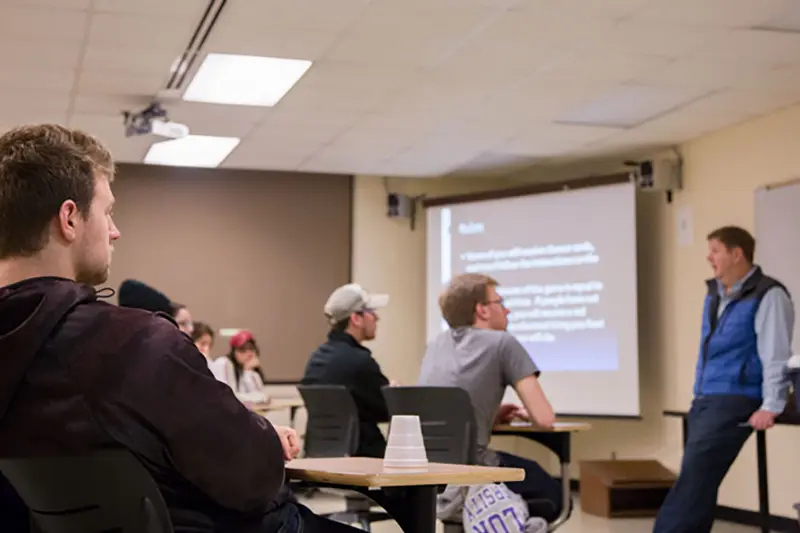-
-
- Financial Aid
- Financial Aid
- Scholarships
- Loans
- Grants
- Federal Work Study
- Additional Resources
-

What lessons can you learn from a Ugandan prostitute, a Rwandan murderer, and a Congolese refugee?
Professor of Sociology Michael Jessup has learned a lot from these individuals. He has a deep understanding of how culture affects how people live and think. As Chair of the Sociology & Anthropology Department, Jessup is, by all accounts, a scholar with years of experience in his field.
Yet he will tell you that despite his academic background, the most powerful, challenging, and haunting lessons he has encountered in his lifetime were those he learned interacting with people in unexpected places and circumstances.
Such is the life of a social sciences professional with a heart for the vulnerable among us.
Taylor’s mission is “to develop servant-leaders marked with a passion to minister Christ’s redemptive love and truth to a world in need.”
Jessup’s “world in need” includes a refugee camp in northwestern Uganda. He was called to Bidi Bidi, a camp with over 200,000 refugees, ranking it as one of the largest refugee camps in the world. Most of these refugees are fleeing ethnic violence in Sudan.
After South Sudan gained independence in 2011, the Sudan People’s Liberation Movement divided, still fighting for power. South Sudan is home to 64 different tribes/ethnic groups, with Dinka, Luo, Nuer, and Shillak often competing for this power. Political power often coalesces along tribal lines, and violence, kidnapping, murders, the burning of homes and livestock remains rampant.
“Many South Sudanese are struggling to survive after years of conflict has destroyed livelihoods, disrupted planting and harvesting, and depleted savings and livestock,” Jessup said. “A drought has also significantly decreased agricultural production, forcing millions of people to flee. Almost 4 million people have fled, and Uganda hosts 1.4 million refugees.”
This was the story Jessup stepped into when he partnered with Water Mission to host a four-day Forgiveness, Reconciliation and Trauma conference in Bidi Bidi with a one day follow-up workshop.
Attending the conference were 50 clergy members, 50 Christian teachers, 30 women leaders, 20 youth, 30 Bible college students and 20 members of refugee welfare councils. Jessup took participants through a reconciliation workbook called From the Heart, and all who were involved learned skills on forgiveness and reconciliation, trauma, friendship, evangelism, and hosting neighborhood Bible studies.
During this time, 250 Bibles were distributed, and 23 people received Christ as their Lord and Savior.
“To help people begin the journey of reconciliation and forgiveness requires not only an understanding of theology, but culture, social structure, language, tribalism, social class, social justice, marriage and family systems, politics, development, community organizing, and economics,” Jessup said.
Noting the role of academics in serving a world in need, Jessup explains: “Sociology and anthropology provide unique sets of tools to help people. It is whole-person and community transformation.”
With the world becoming increasingly smaller and more interconnected, students who can promote change in a complex world are in high demand. At Taylor, all students will learn a variety of skills in social fields through the liberal arts curriculum. Social Science students will especially focus on learning to offer hope and healing to others.
Some of the lessons students learn through social science classes at Taylor involve understanding how culture affects the way people live, think, learn, flourish, and grasp the gospel. Professors encourage students to recognize the complexities of national and international issues and develop ethical positions on global issues that are informed, thoughtful, and nuanced.
Additional emphases of social science classes include:
Whether you hope to share Christ's love in a traditional workplace, in a refugee camp, or anywhere else, Taylor Social Sciences program aims to equip you to reach others with the love of Christ.